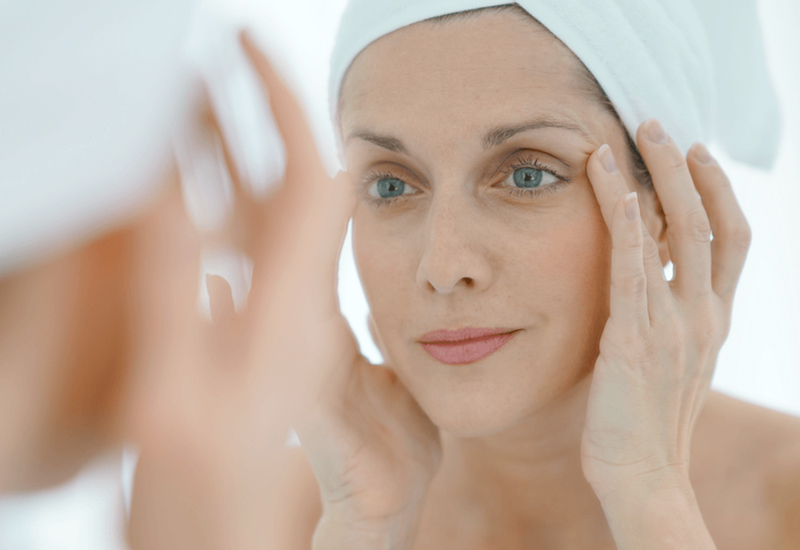Menopausal stage is pretty much as tough and complicated process to endure as monthly period.
It can even last up to years and cause a lot of body changes caused by hormonal shift. And like periods, menopause can affect the skin too.
Hormones and Menopause
Menopause is an incredibly hard phase where a woman’s hormones and the activity in a woman’s ovarian decrease or increase drastically.
A part of this covers the decrease in B-Estradiol levels, hence the various changes a woman in a menopausal stage can go through. Also, this decrease affects the skin, giving it intense warmth particularly of the face alongside profuse sweating.
Moreover, when we women are in menopausal stage, the tendency is our adrenal glands and ovaries produce increased androgens. While this may sound good, know that androgens with the absence of estrogens, can actually trigger menopausal symptoms like clitoris enlargement, voice deepening, and even the showing of some facial hair.
How Menopause Affects the Skin
Like the spike or decrease of some hormones that cause acne, hyperpigmentation, dry skin, and all that skin problems, the hormonal changes that take place during and after menopause also affect the skin’s physiology but this time in an almost similar but kind of different way.
- Skin Aging (Wrinkles and Sagging Skin) – In most women going through menopausal stage, we can most likely notice that their skin is aging. That is primarily caused by the decline of B-Estradiol during the phase. And since the level of estrogens during menopausal stage drops pretty drastically, the fat deposit that it earlier stimulated over the female body tend to redistribute and usually concentrates on the thighs, buttocks, and on the abdomen. Hence, you can probably notice women in menopause having that sagging, “less fat” skin below the face, neck, hands, and arms. Consequently, this sagging causes wrinkles to appear, making some parts look not so compressed. The breasts may also sag since the fat deposits in there are also reduced, resulting in loss of turgor.
- Facial Hair – The unveiling of testosterone hormone in a woman’s body during menopausal stage also triggers the appearance of facial hair, specifically in the chin area.
- Oily Skin – B-Estradiol is also the one responsible in stimulating a more fluid sebaceous gland secretion. Since in menopausal stage, there is a decrease in estrogen levels, testosterone is no longer veiled in a woman’s body, thereby secreting thicker sebum, thus the presence of oily skin.
- Elastosis – Estrogens control collagen and elastin production. However, during menopause, we all know that estrogen levels really decrease. As a result, less production of elastin and collagen will trigger skin damages not getting repaired as fast as they are supposed to. In other words, the skin will no more be resilient to damages, hence elastosis.
- Thinning Epidermis – The blood flow through the dermal capillaries, which is regulated and controlled by estrogens, also reduces during menopause. Consequently, the basal cell layers of the skin get less nutrients and oxygen. All of these cause thinning of the epidermis and a slower cell turnover rate. In layman’s term, the skin gets really dry during menopause. Hence, bathing yourself up with moisturizers is really a big help.
Apart from the effects it can bring to the skin, menopause also causes internal irregularities like numbness, insomnia, dizziness, back aches, dry mouth, heart palpitations, and a lot more.
Although menopausal symptoms may stop within a year, there are cases where symptoms have to be endured in three straight years or more, with such intensity varying from woman to woman.
If you have any concerns about menopausal skin and would like to know more make an appointment a personalised skin consultation. We can tailor a skin care treatment plan just for you and your concerns.

